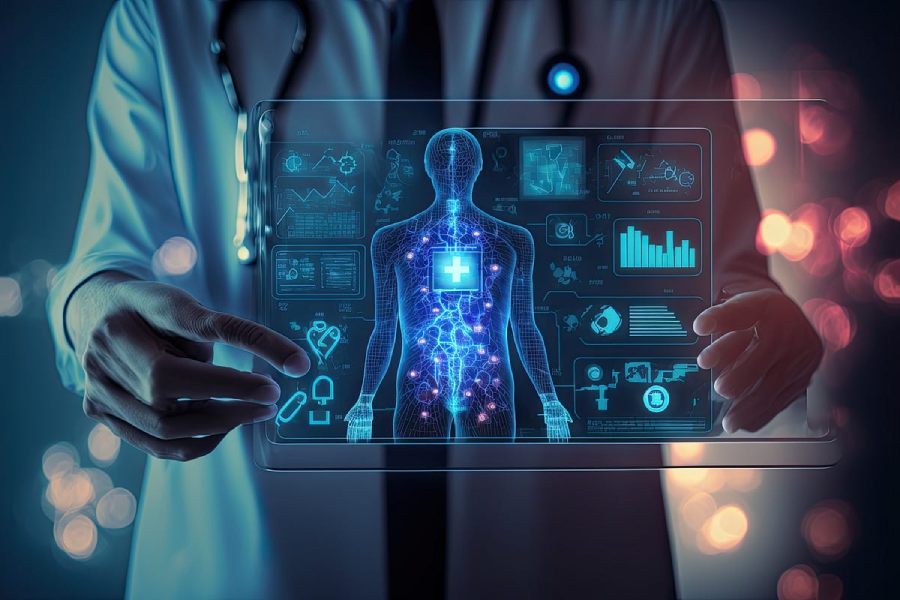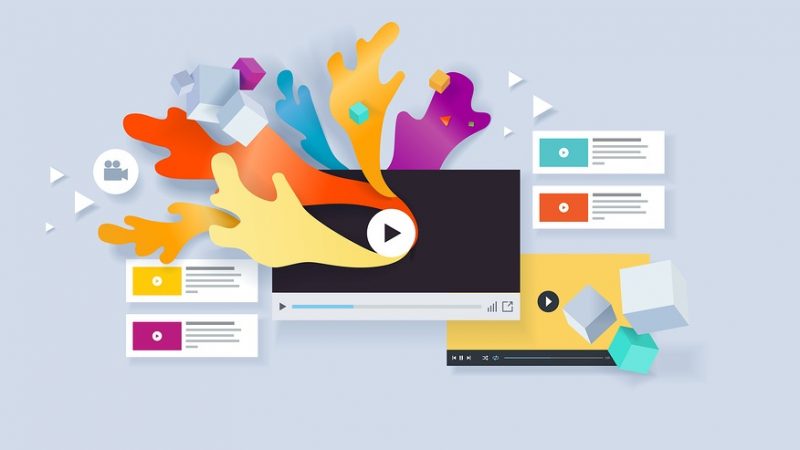Understanding the Impact of AI on Modern Healthcare
Table of Contents:
- Introduction to AI in Healthcare
- Historical Evolution of AI in Medicine
- Data-Driven Decisions in Healthcare
- Improving Diagnostic Accuracy with AI
- Personalized Treatment Plans through AI
- AI in Predictive Health Analytics
- AI’s Role in Patient Care and Monitoring
- The Future of AI and Telemedicine
- Conclusion: Embracing AI for Better Health
Key Takeaways:
- Artificial intelligence (AI) is becoming indispensable in enhancing healthcare outcomes.
- AI improves healthcare by improving diagnostics, personalizing treatment plans, and monitoring patients.
- Ethical considerations and data privacy are paramount as healthcare harnesses AI’s power.
Introduction to AI in Healthcare
As technology strides into the future, artificial intelligence in healthcare plays a pivotal role in transforming conventional medical practices. AI’s capacity to efficiently analyze and process vast data sets empowers it to aid in diagnostics, prognostics, and treatment planning, ultimately enhancing the quality of care and patient results. The healthcare industry is gradually embracing the capabilities of this technology, from simplifying complex processes to personalizing patient care and integrating AI into healthcare. It promises to revolutionize every aspect of the medical field, offering greater precision and fostering a preventative approach to health management.
Historical Evolution of AI in Medicine
The origins of incorporating AI into medicine date back several decades. Yet, it wasn’t only with the rise of sophisticated technologies and computer processing in the late 20th and early 21st centuries that AI’s potential began to blossom within the medical sector. From early experimentation with pattern recognition and clinical decision support systems, AI has showcased an incredible aptitude for learning and adaptation. Breakthroughs in natural language processing and machine learning have since propelled the technology into the spotlight as a game-changer for healthcare, highlighting a trajectory of continued innovation and integration into various aspects of medical care.
Data-Driven Decisions in Healthcare
AI stands as a beacon of progress when it comes to making data-driven decisions in healthcare. With the digitization of health records and the explosion of wearable technology, a deluge of health data is available that necessitates advanced analytical capabilities. Enter AI, with its competence to parse through expansive data sets for meaningful patterns and predictions. This capability extends far beyond human capability alone, proving vital in crafting personalized treatment regimens, streamlining operational efficiencies, and enhancing patient care protocols with collectivized insights. The result is an increasingly informed and agile healthcare landscape, capable of responding to patient needs accurately and enthusiastically.
Improving Diagnostic Accuracy with AI
Diagnostics has witnessed one of the most significant enhancements with the induction of AI technologies. Complex imaging technology, coupled with AI interpretation, can reveal nuances that are sometimes missed by the human eye. For example, AI algorithms have been developed to detect early signs of diseases such as cancer and diabetic retinopathy, proving critical in initiating treatments promptly. The implications are far-reaching, with the potential to significantly reduce mortality rates through early diagnosis and AI-assisted precision medicine. Medical professionals increasingly rely on these AI-supported tools to deliver a higher standard of care to their patients, a testament to AI’s growing impact on medical diagnostics.
Personalized Treatment Plans through AI
The age of personalized medicine is deeply intertwined with the advancements in AI. By analyzing a patient’s genetic makeup, lifestyle, and environmental factors, AI algorithms generate customized treatment plans that maximize therapeutic effectiveness while minimizing adverse effects. This level of personalization is paramount, especially in complex fields such as oncology, where more than one-size-fits-all approach is often needed. The nuanced AI-generated insights enable practitioners to make more informed decisions, progressing toward treatments unique to each individual’s health profile. As a result, patient outcomes are improved, and healthcare is humanized through the power of tailored care.
AI in Predictive Health Analytics
Predictive health analytics capitalizes on AI’s predictive powers to transform healthcare from reactive disease treatment to proactive health management. By intelligently analyzing healthcare trends and patient data, AI constructs models that foresee potential health events before they occur, allowing healthcare providers to institute preventative measures. The predictive prowess of AI is instrumental in identifying at-risk populations for chronic diseases, predicting epidemics, and optimizing resource allocation for anticipated demand. By shifting the focus towards prevention, AI in predictive health analytics sets forth a vision of healthcare that is more effective, conscientious, and preventive in its approach.
AI’s Role in Patient Care and Monitoring
The intervention of AI technologies has revolutionized patient care and monitoring. Wearable devices that monitor vital signs and smart sensors deployed in clinical settings generate real-time data streams that AI processes for timely health assessments and alerts. These technologies facilitate continuous care, even outside traditional medical settings, empowering patients through increased autonomy over their health. In hospitals, AI-based monitoring systems are proving critical for early detection of deterioration in patient conditions, enabling rapid responses that can be life-saving. The application of AI in patient care and monitoring echoes a commitment to reducing error, improving patient outcomes, and sustaining life through technology.
The Future of AI and Telemedicine
The synergy between AI and telemedicine is forging pathways to a future in which quality healthcare is accessible to a broader demographic. Strengthened by AI’s ability to assist with diagnostics, evaluate symptoms, and monitor treatment compliance remotely, telemedicine is poised to become a mainstay in healthcare delivery. This integration promises to bridge gaps in healthcare access, particularly in rural or under-resourced communities, and provide a seamless experience for providers and patients. As AI enriches telemedicine with enhanced precision and insight, the possibilities for transformative care models and global health initiatives grow exponentially.
Conclusion: Embracing AI for Better Health
Society stands on the cusp of a healthcare revolution, one poignantly defined by the contributions of AI. This technological wave is set to redefine what is possible within prevention, diagnosis, and treatment. As the healthcare community works to keep pace with these rapid developments, embracing AI becomes imperative to unlocking better health outcomes and more resilient health systems. Fostering a spirit of innovation and adaptation will be essential as healthcare takes on the challenges and opportunities of this AI-driven era. By navigating the complexities and embracing the potential, AI can be harnessed to transform healthcare and elevate the quality of life for generations to come.






